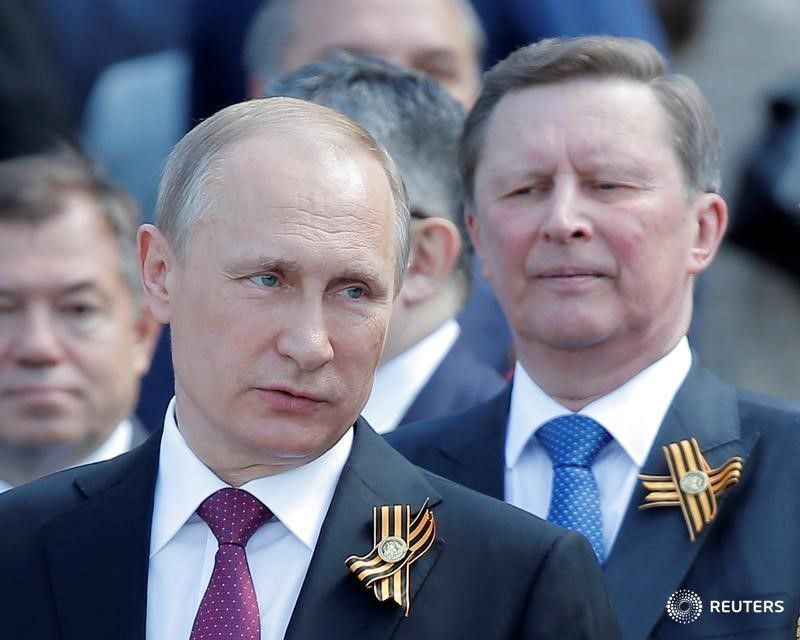
This article first appeared on the Atlantic Council site.
On August 12, Russian President Vladimir Putin dismissed his longtime chief of staff, Sergei Ivanov. Ivanov was the second most important person in the Russian political hierarchy.
This is a major change in the Putin government, with many implications. Putin replaced Ivanov with Anton Vaino, a former diplomat and head of Putin's protocol office for many years. Vaino is a grandson of Estonia's former Communist leader.
Putin and Ivanov reportedly attended the KGB training school at the same time, but unlike Putin, Ivanov was an outstanding officer. Ivanov, who speaks fluent English and Swedish, was KGB chief in Finland. He is secure, speaks happily with foreigners and has a good sense of humor.
Ivanov was persistently a member of Putin's inner circle. After starting as national security secretary in 1999, Ivanov was Russia's minister of defense from 2001 to 2007. Putin promoted him to first deputy prime minister—letting him compete with Dmitry Medvedev for the position of president.
Putin ultimately chose Medvedev, preferring the weaker candidate. In December 2011, Putin appointed Ivanov his chief of staff.
Although Putin and Ivanov have been so close to each other, Ivanov has been seen as a rival to Putin. Ivanov used to say that Putin became only lieutenant colonel in the KGB, while he was lieutenant general. Their feuds have focused on security and international affairs issues.
Ivanov is usually seen both as a hard-liner and as a problem solver. He is a supporter of Russia's state corporations—especially its armament industry—while he has no known connections with Putin's billionaire cronies.
Ivanov has long been identified as the leader of the FSB—Russia's internal security service—bloc in the Kremlin, which also includes National Security Adviser Nikolai Patrushev and FSB Chair Alexander Bortnikov, as well as former Prime Minister Mikhail Fradkov, who heads the SVR—Russia's foreign intelligence agency. Against them stand the Presidential Guard, also known as the FSO, which Putin sees as his most loyal service.
The FSO has acted with and protected Chechen President Ramzan Kadyrov, who is no friend to the FSB. The rivalry between the FSB and the FSO came to a head in February 2015 with the murder of opposition leader Boris Nemtsov at the Kremlin.
One side seems to have carried out this killing as a challenge to the other group. First, Ivanov disappeared from the public eye for a week, and then Putin was absent for 10 days. No clarity was reached following the incident.
The fight flared up again in April 2016, when Putin formed a new National Guard under the command of his longtime bodyguard, General Viktor Zolotov from the FSO. Remarkably, on April 6, a presidential decree appointed Zolotov as one of the 12 permanent members of the Russian Security Council, but on April 11 this decree was corrected to mere member, of which there are dozens. This indicates fierce resistance by the KGB generals on the Security Council spearheaded by Ivanov.
In substance, Ukraine policy has evidently been a bone of contention. In the spring of 2014, Ivanov allegedly inspired a leaked plan to take half of Ukraine—including Kiev—to incorporate its military-industrial complex with Russia, which Putin did not support.
Later on, however, Ivanov was rumored to complain about Western sanctions and urging Russian concessions to the West to ease such sanctions. The evidence is shaky, but Ivanov's position seems to be one of wanting to get as much as possible out of Ukraine, but ultimately reach a settlement with the West, while Putin seems comfortable with unsolved frozen conflicts that destabilize neighboring countries.
The timing of Sergei Ivanov's sacking suggests that it was connected with disagreement with Putin over Russian policy toward Ukraine. On August 8, Putin summoned his Security Council, but, exceptionally, only six out of 12 members attended. Ivanov was missing.
On August 11, the Security Council met again with 11 of its 12 members present, this time including Ivanov. Ukraine was the main theme of both meetings. Presumably, Ivanov objected to the policy Putin proposed.
On August 12, Putin changed the composition of the Security Council through a presidential decree, but only marginally. Remarkably, he has not sacked Ivanov from the council. However, he has replaced the rather irrelevant former Minister of Interior Rashid Nurgaliyev with Vaino.
Once again, Putin failed to promote General Zolotov. Thus it does not look as if Putin has gained control over the Security Council, which appears to be the actual Politburo of his regime. The battle between FSB and FSO proceeds headstrong.
Putin has taken a big daring step by sacking Sergei Ivanov, but he has so far failed to seize control of the Security Council, which could oust Putin himself for his adventurous policies. This instability in the Kremlin is likely to impact its Ukraine policy, but at this point it could go either way.
The Security Council might want to contain the adventurous Putin, or Putin might want to use a new small victorious war in Ukraine to seize control over the Security Council.
Anders Åslund is a senior fellow at the Atlantic Council.
Uncommon Knowledge
Newsweek is committed to challenging conventional wisdom and finding connections in the search for common ground.
Newsweek is committed to challenging conventional wisdom and finding connections in the search for common ground.
About the writer
To read how Newsweek uses AI as a newsroom tool, Click here.








